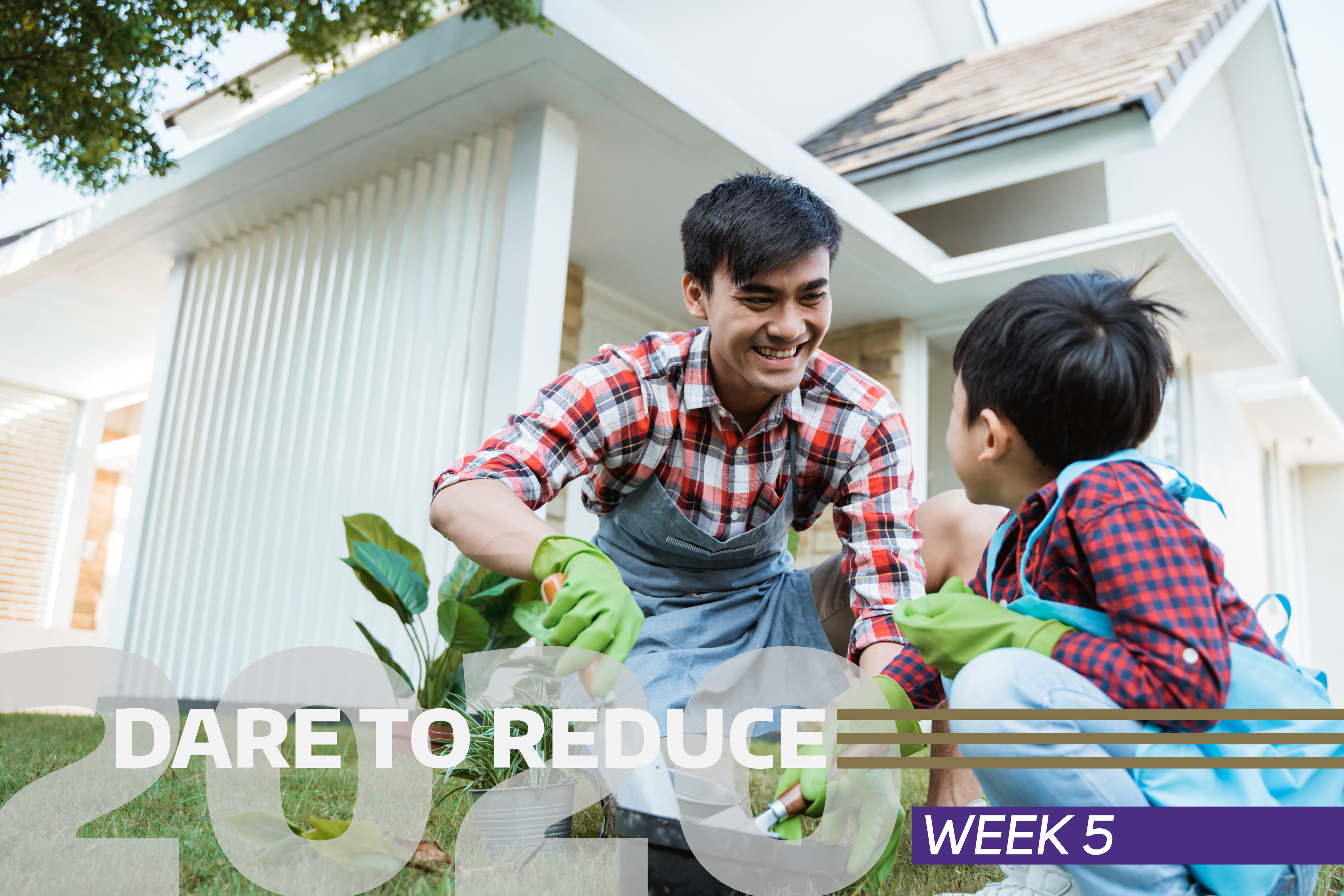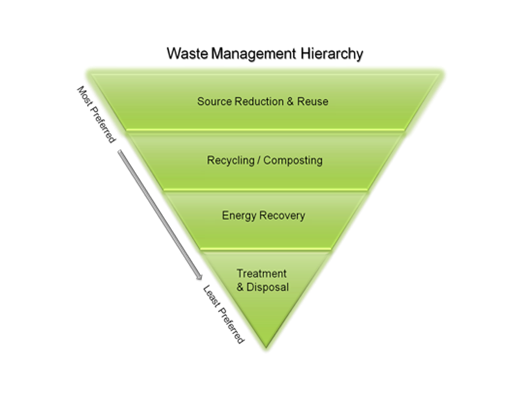
Dare to Reduce: Live Better with Less Waste
Welcome to Week 5 of The Whole U’s six-week Dare to Do New Year’s challenge! To learn more about how to get involved in this challenge where we target a different sector of health and wellness every week, register here. We have already accomplished the first four weeks of the challenge, which focused on meditation, fitness, nutrition, and investing in your goals.
This week, we are challenging ourselves to Dare to Reduce! Read on to learn how to cut back and save more with tips for optimizing composting and recycling systems. Follow us on Facebook, Twitter, or Instagram for daily challenges.
 Cutting Back On Waste
Cutting Back On Waste
Almost all of us throw away something—or, maybe, a lot of things—each and every day.
The average American generates about five pounds of trash daily. Much of that trash ends up in landfills. Plus, creating all that stuff requires raw materials, generates greenhouse gas emissions, and uses water.
When items end up in the landfill, it creates methane and other greenhouse gases. According to the U.S. Environmental Protection Agency, landfill gas accounts for 17.7% of all U.S. methane emissions.
Recycling and composting are good alternatives, but not creating waste in the first place is even more powerful (represented by the top segment of the chart at left).
Avoid Trash When Possible
 Reducing waste by consuming less requires being mindful in our actions and purchases. Before buying something, ask yourself if you really need it. If you determine that you do need it, looking for a gently used option at thrift stores or groups such as Buy Nothing or Freecycle can give exiting items a new life.
Reducing waste by consuming less requires being mindful in our actions and purchases. Before buying something, ask yourself if you really need it. If you determine that you do need it, looking for a gently used option at thrift stores or groups such as Buy Nothing or Freecycle can give exiting items a new life.
A great on-campus option, especially for items like furniture or office accessories, is UW Surplus. UW Surplus takes all unwanted items from all UW departments and two research hospitals. Their objective is to reuse, repurpose, or recycle as many items as possible to lessen the University’s climate impact on both purchasing and disposal.

You can browse a selection of available items on the UW Surplus site, and everyone can shop at the Public Store on Tuesdays from 12-6 p.m. (UW departments, non-profit organizations and Registered Student Organizations can shop every weekday.)
UW Surplus’ motto is “reuse ▸ repurpose ▸ recycle,” but when many UW Surplus staff talk about the store and its services, they like to add a fourth term to the mix: reimagine. Learn more about how UW Surplus helps UW reduce waste while helping people find just what they’re looking for in our recent Staff Story spotlight that is linked here!
“Precycling” and Reusing
When you cannot avoid buying a new item, practice “precycling” and only buy long-lasting products that use minimal packaging and can be reused or recycled at the end of their life. For other items, such as food, think about how to minimize the amount of waste your purchases generate. Buy only what you need, avoid individually wrapped items, and use bulk dispensers when possible.
Also begin to think about disposable items you regularly use. Try to find reusable options instead—and then actually use them! Those water bottles and tote bags are only helpful when they’re out of your closet and used to avoid the disposable alternatives. If you have a giant bundle of reusable bags taking up space in your storage closet, the UW Food Pantry or local food banks can always utilize them.
Recycling and Compost Properly
Some waste is unavoidable. We know composting and recycling is crucial to keep as much waste as possible out of the landfill. We are lucky that in Seattle, it is relatively easy to get items into recycling or composting. With easily accessible bins on campus and across town and curbside pickup, finding the right receptacle for your waste is not difficult. Knowing which bin to use, however, can sometimes be tricky.

At UW and in King County, plastic recycling generally relies on the shape of the object. Ignore the numbers on plastic containers – bottles, tubs, jugs and cups can be recycled. Other plastic, like blister pack packaging, needs to go in the trash. Cardboard and paper should usually be recycled, but if it has food scraps or grease it goes in compost.
All food waste should go into compost, where it is broken down and eventually used as a soil amendment, which can help grow more food. Meat, bones, dairy, napkins, paper towels – all goes in compost. If you buy food or coffee on the UW campus and don’t use a reusable container, most to-go service ware is compostable. All cups and lids purchased on campus are compostable (but be careful – if you get that Starbucks off-campus, the cup goes in recycling).
Additional Information:
For more information, check out UW Recycling’s answers to common composting and recycling questions, or the UW Disposal Guide. At home, King County has a nice overview of residential recycling and composting. If you’re still wondering which bin to toss your unwanted items into, check out this article!
A few small moments of mindfulness and awareness can really add up when reducing our waste. Take these tips and think about where you can make a difference in your daily routine.
Upcoming Event!
UW Sustainability and UW Recycling will also have more information on reducing your waste and will answer your questions at our Dare to Reduce talk on Feb. 7 in HUB. To register and learn more about the event details, click here!
 Cutting Back On Waste
Cutting Back On Waste